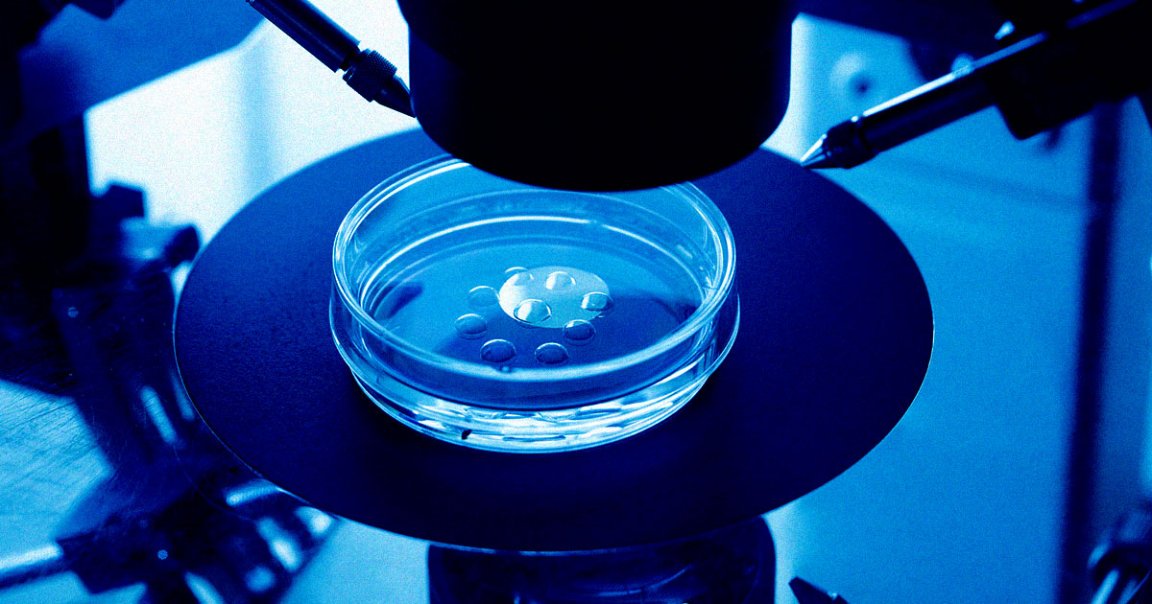
A Spanish startup has built a sperm-injecting robot that can be controlled using a PlayStation controller. The team successfully used it to fertilize human eggs, eventually resulting in the birth of two healthy babies.
As MIT Technology Review reports, one of the engineers working on the world’s first insemination robot didn’t have all that much experience in the field of fertility medicine — which was where the PlayStation 5 controller came into, well, play.
Using the controller, a student engineer from startup Overture Life [name after descriptor] steered a tiny, mechanized in-vitro fertilization (IVF) needle to deposit single sperm cells into human eggs more than a dozen times.
And the unusual technique appears to have worked. Two baby girls were born as a result of robotic fertilization this spring.
“I was calm,” Eduard Alba, the PlayStation controller-wielding student engineer, told MIT Technology Review. “In that exact moment, I thought, ‘It’s just one more experiment.'”
If the process sounds less futuristic than you were expecting, it’s probably because it is. In essence, it’s a robotic update to traditional IVF, which involves human specialists joining a woman’s egg and a man’s sperm in a dish using a special needle under a microscope, which sometimes — but not always — results in fertilization.
Because the current IVF practice is so delicate and labor-intensive, it’s very expensive, with each attempt at pregnancy in the US costing around $20,000, according to the report.
That’s where startups like Overture and several others identified by MIT Technology Review come in. They aim to make the process much cheaper and more accessible by increasingly automating parts of the process.
Thus far, Overture has raised about $37 million, the most out of the lot, with backers including former YouTube CEO Susan Wojcicki.
According to the experts, it’s only an incremental step towards fully automating the process.
“The concept is extraordinary, but this is a baby step,” Weill Cornell Medical Center fertility doctor Gianpiero Palermo, who developed the now-commonplace intracytoplasmic sperm injection (ICSI) procedure in the 1990s, told MIT Technolgy Review.
Palermo added that Overture’s engineers still had to manually load sperm cells onto the injector needles, which means “this is not yet robotic ICSI.”
All the same, it’s still an impressive step forward in fertility medicine — and to think, it was done with a PlayStation controller is amazing.
More on fertility: Twins Born From Donated Embryos That Were Frozen in 1992